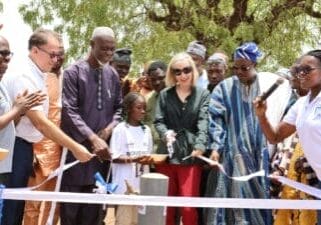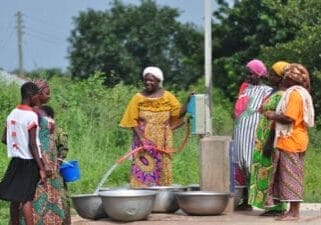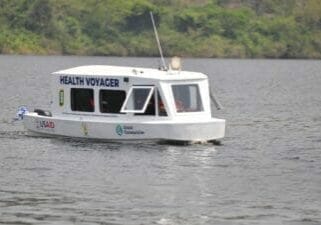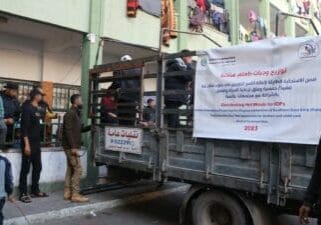News > Blog
Providing Professional Development Opportunities to Graduate Engineers in the Gaza Strip
Published 06/27/2023 by Global Communities

By Ziad Bakri and Nour Zaqqout
Seven graduate students are one step closer to building a better future for themselves and the world at large after completing a seven-month engineering fellowship focused on water, sanitation and hygiene (WASH) construction projects in the West Bank and Gaza.
Global Communities welcomed the first cohort of engineers in September 2022 and recently selected a second cohort of 10 graduate students in April as part of a larger program known as the Gaza Household WASH Activity.
The engineering fellows are responsible for supporting the field with construction works that will ultimately increase access to reliable WASH facilities and services for nearly 132,000 people in the Gaza Strip. In addition to monitoring small construction activities and ensuring the application of safety procedures and policies at the sites, the students are also contributing to the implementation of monitoring and evaluation activities – all valuable work experience in an area struggling with high unemployment rates.
“In Gaza, job opportunities are scarce, and the competition is strong,” said Mohammad Ferwana, a 25-year-old graduate student who was among the first cohort of engineering fellows to work with the Gaza Household WASH Activity. “As engineers, our technical background in the field is not enough. The more knowledge and skills you have, the better is the chance to find a job.”
In 2021, the Palestinian Central Bureau of Statistics reported that the Gaza Strip faced an alarming unemployment rate of 48.6%, with youth unemployment reaching approximately 63.2%. Furthermore, skilled or educated individuals often cannot find suitable jobs in their fields due to the lack of diverse and sustainable economic sectors in the Palestinian territory.
By participating in the engineering fellowship, Mohammad and other graduate students in his area of study have been given a unique opportunity to build their skills and capacities, learn about non-governmental organizations (NGOs) and establish a strong professional network.
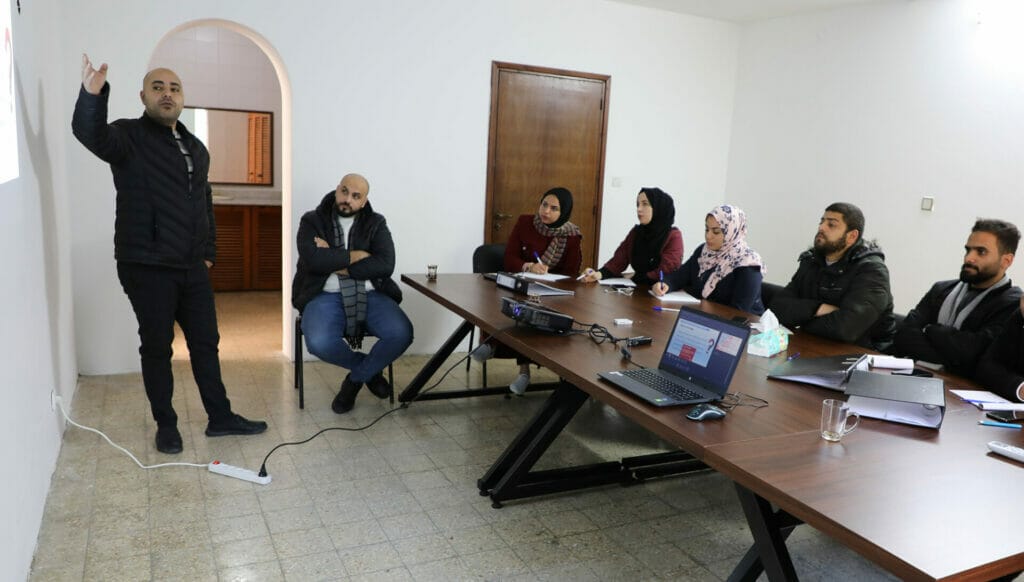
“This is the first time I worked with an international NGO,” said 25-year-old Rajaa Abu Rok, another student from the first fellowship cohort. “I got the chance to learn more about the system and work closely with other organizations in the field. This will help me when I apply for future job opportunities. In addition, I learned about different processes related to projects and new software.”
As the fellows engage in tasks assigned to them on various WASH projects, lead engineers with the Gaza Household WASH Activity ensure they receive proper orientation before any activity and provide guidance and support throughout the process. For Lina Mousa, 24, that mentorship and on-the-job experience has helped to enhance more than just her technical abilities.
“I learned how to deal and interact with people of different backgrounds,” said Lina, citing how field visits to households in project areas were a routine part of her fellowship assignment. “We received trainings about how to approach people, ask questions and ensure that we are dealing with them in the most professional manner. Also, I got the chance to build my organizational capacities, which is something new to me.”
The engineering fellowship has proven to have a positive impact on more than just its participants. Close collaboration with Global Communities’ staff has allowed for a fruitful exchange of ideas and experiences, creating a dynamic environment that encourages growth and learning. This diversity has strengthened the organization’s ability to address the unique needs of the communities it serves.
“I have had the privilege of witnessing firsthand the immense value that engineering fellows bring to our work. Their passion, knowledge and dedication inject a renewed energy into our projects,” said Abdelhalim ElKurd, Chief Engineer of Global Communities’ Gaza Household WASH Activity. “Their fresh perspectives challenge the thinking beyond conventional solutions and push the boundaries of what we can achieve. The fellowship program has become an integral part of Global Communities.”
Given the positive outcomes from the first and second cohorts, a third cohort is likely to follow that will include at least four additional graduate engineering students. Global Communities will continue to refine and expand the fellowship program, building on lessons learned and ensuring its lasting impact on the communities we serve. By investing in the next generation of engineers, we are shaping a brighter future for all.



